Smartphone addiction
Our increasing reliance on smartphones has led to a surge in hand-related issues, commonly known as "texting thumb" or "smartphone thumb."


The constant scrolling, tapping, and swiping can strain the tendons and ligaments in the hand, leading to conditions like tendinitis and carpal tunnel syndrome.
Improper workspace setup
Whether you’re at the office or working from home, a too-high or too-low workspace setup can contribute to hand discomfort and injury.


Sitting at a desk with poorly positioned keyboards can strain the muscles and joints, leading to repetitive strain injuries (RSIs) like carpal tunnel syndrome and tendonitis.
Neglecting hand exercises
Just like any other part of the body, our hands benefit from regular exercise to maintain strength and flexibility.
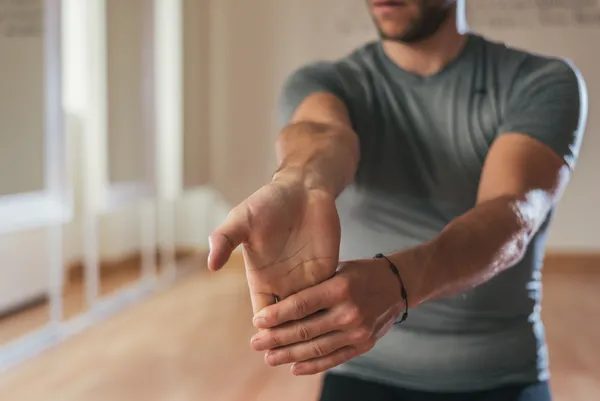

Simple exercises like finger stretches, hand squeezes, and wrist rotations can help prevent stiffness and reduce the risk of injury.
Ignoring signs of hand stress
Many people dismiss hand pain or discomfort as a normal part of daily life, but symptoms should not be ignored.
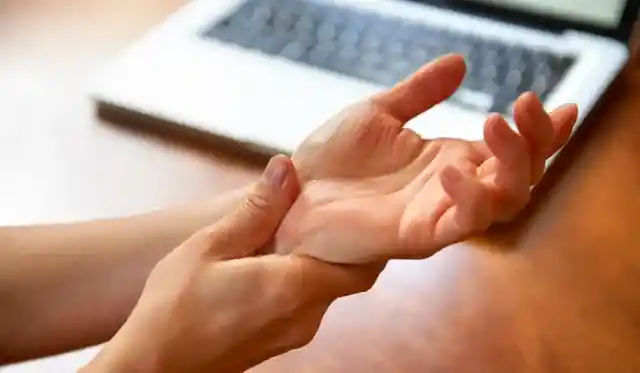

Ignoring hand pain can lead to more serious conditions over time, so it's essential to listen to your body and seek medical attention if necessary.
Poor utensil technique
Cooking is an essential skill, but before you take to the kitchen - make sure you know what you’re doing!


Incorrect knife and utensil handling can lead to cuts, strain, and even long-term damage. Invest time to learn proper cutting techniques and use utensils that are easy to grip and maneuver.
Poor hand hygiene
Your hands come into contact with more germs than anywhere else on your body, so neglecting hand hygiene can result in the spread of germs and infections.


Make sure you wash your hands thoroughly and regularly with soap and warm water, especially before preparing food or after using public spaces.
Always wearing rings
We love our rings too, but there’s a time and a place! Wearing rings during physical activities, such as exercise or gardening, can pose a risk.


They can get caught on objects, causing injury or even finger amputation. Stay safe, and remove your bling before switching on the lawnmower.
Overusing hand sanitizers
While hand sanitizers are essential for killing germs, using them instead of soap can have adverse effects on your hand health.
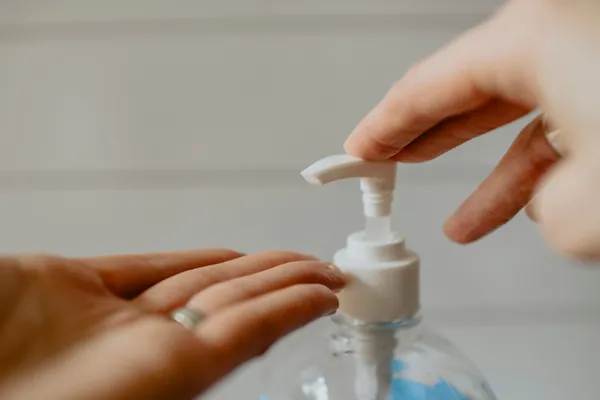

The high alcohol content in sanitizers can strip the skin of its moisture, leading to dryness, irritation, and even chemical burns with prolonged exposure.
Lack of proper hand protection
Failing to use protective gear, such as gloves, when engaging in activities like cleaning, gardening, or working with chemicals, can result in skin irritation, chemical burns, or other injuries.


Hand protection is essential, especially if you have sensitive skin. Buy a few pairs of gloves – rubber, cotton and leather, and keep them around the house.
Stress
Stress and tension can manifest physically in your body, and this includes your hands. This can lead to muscle tightness, clenched fists, and overall discomfort.


Practicing relaxation techniques like deep breathing, meditation, and yoga can help alleviate tension and promote overall hand health.
Gaming
Extended gaming sessions can put a significant strain on your hands, wrists, and fingers, leading to conditions like gamer's thumb and carpal tunnel syndrome.


The rapid button presses and repetitive motions can exacerbate symptoms, so it's essential to take regular breaks and stretch your hands and wrists.
Crafting
While crafting can be a therapeutic and enjoyable activity, hours spent knitting, crocheting, or crafting with small objects can lead to hand fatigue and repetitive strain injuries.
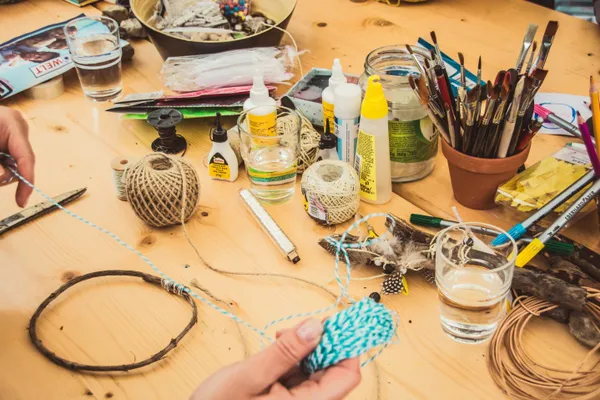

To prevent discomfort, take frequent breaks, stretch your hands, and vary your activities to avoid overuse of specific muscles.
Handheld power tools
Handheld power tools like drills, sanders, and saws can transmit significant vibrations to your hands and arms, leading to conditions like hand-arm vibration syndrome (HAVS).


Prolonged exposure can cause numbness, tingling, and weakness in the hands. Wearing protective gloves or using anti-vibration tools can help reduce the risk.
Playing instruments
While playing musical instruments can be a rewarding experience, it can also place strain on your hands and wrists, particularly if you play for extended periods or have poor technique.


Musicians, especially pianists and guitarists, are susceptible to overuse injuries like tendonitis and carpal tunnel syndrome. Make sure to take breaks to stretch and rest your hands.
Carrying heavy bags
Whether it's a backpack, purse, or tote bag, carrying heavy loads can strain the muscles and joints in your hands, wrists, and shoulders.


To reduce the risk of injury, opt for a bag with ergonomic features, distribute weight evenly, and avoid carrying unnecessary items.
Excessive hand washing
Proper hand hygiene is essential for preventing illness, but excessive washing with harsh soaps and hot water can strip the skin of its natural oils, leading to dryness, irritation, and dermatitis.
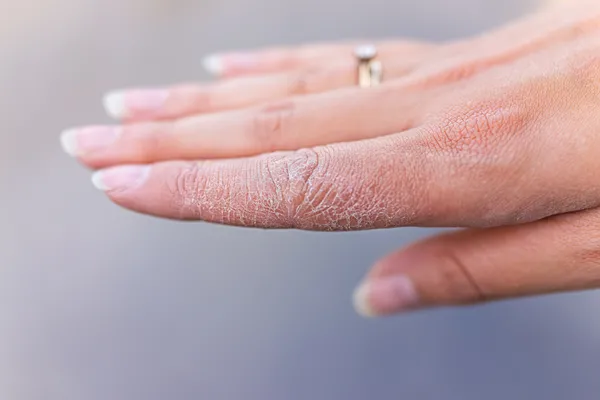

Use gentle cleansers, moisturize regularly, and avoid over-washing when possible. Stick to the CDC’s recommended 20 seconds when washing.
Opening stubborn jars
Struggling to open stubborn jars and bottles can put undue stress on your hands and wrists, leading to strain and discomfort.
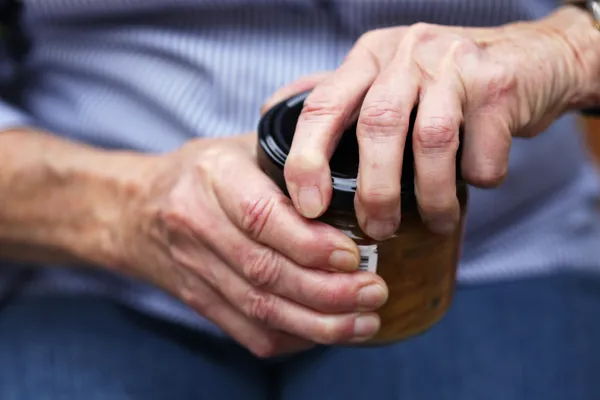

To make the task easier, use tools like jar openers or rubber grips, run the lid under hot water to loosen it, or ask for assistance when needed.
Playing with pets
While interacting with pets can bring joy and companionship, activities like tug-of-war or rough play can lead to hand injuries like bites, scratches, or strains.


Be mindful of your pet's behavior and use appropriate toys and training techniques to prevent accidents and injuries.
Using hand dryers
Blasts from high-heat hand dryers aren't just for warming up your mitts; they can zap the moisture right out of them! Say hello to dry, irritated skin!


Opt for air dryers with adjustable settings or use paper towels instead to avoid potential damage. Your hands will thank you!
Washing dishes
Exposure to harsh dishwashing detergents and cleaning chemicals can irritate the skin on your hands, leading to dryness, redness, and dermatitis.


Donning gloves while scrubbing away grime and moisturizing post-dish-duty are small steps with big benefits for your hand health. Keep those mitts happy and hydrated!
Cracking your knuckles
While cracking your knuckles may provide temporary relief, it can weaken the ligaments surrounding the joints and contribute to joint instability over time.


It may feel satisfying in the moment, remember: every pop comes at a price! Break the habit to maintain your hand health and reduce the risk of arthritis.
Biting your nails
Chewing on your nails or biting the skin around your nails can introduce bacteria and fungi into your mouth and lead to infections.


It can also damage the nails and surrounding skin, leading to pain and discomfort. Keep your nails trimmed and try wearing bitter-tasting nail polish as a deterrent.
Gardening
Gardening: the ultimate hand workout! From digging to pulling weeds, trimming hedges and pushing wheelbarrows, it's a hands-on experience.


But amidst the blooms and greenery lies hidden danger: strain and wear on your hands. Before you dive into those flower beds, give your hands some love by wearing gloves!
Styling hair
Stylists, beware! Your client's chair height could be a silent saboteur. If it's not just right, you're in for some serious hand and arm strain.


Stretching up or bending down can easily throw off your groove, leading to awkward angles and potential hand and arm injuries.
Smoking
Lighting up isn't just bad for your lungs; it's a menace to your hands too. Nicotine narrows blood vessels, starving your joints of vital nutrients and oxygen.


This can lead to cartilage loss and potentially, osteoporosis. It also makes pain feel more intense, making arthritis meds less effective.
Not exercising
Sedentary habits and a lack of exercise leads to weight gain, which puts extra strain on your hand and wrist joints.


According to a study in Arthritis & Rheumatology, maintaining a healthy weight is crucial for joint health. Break up sitting every 30 minutes with a few minutes of stretching.
Poor posture
Hunching over while typing or doing activities strains your shoulder and neck muscles, which can lead to discomfort in your arms and wrists.


Sit up straight, roll those shoulders back, and keep your entire posture in check to avoid unnecessary strain on your hands.
Not stretching
Painting masterpieces or knitting cozy scarves? Watch out for your wrists! Too much of these fun tasks without breaks can strain the muscles, causing inflammation and discomfort.


Taking regular stretching breaks not only gives your wrists a rest from the repetition but also helps maintain flexibility and prevent stiffness.
Holding things too tightly
Crushing your phone like you're in a tug-of-war? Time to dial it down! Squeezing too hard strains those hand nerves, worsening carpal tunnel.


If you catch yourself turning your phone into a stress ball, take a breather. Put it down, shake it out, and give those hands a mini-massage.
Never training your upper body
Think of your body like a pyramid: big muscles support smaller ones. If you’re hitting the gym just to hog the squat rack, how do you expect to maintain strong hands?


Strengthen the muscles in your arms, wrists and hands with exercises like pull-ups and push-ups. You don't need to be a gym rat - just aim for good form and moderation.
Caffeine
Drinks like coffee and tea may seem harmless, but they can tighten up your blood vessels faster than a rubber band.


Less blood flow means less relief for your aching hands. So next time you're tempted by that extra cup of joe, remember: you might be sacrificing your hands!
Cooking
All that chopping, stirring, and kneading might result in some tasty treats, but they can also leave your hands feeling less than fabulous.


From carpal tunnel syndrome to accidental burns, sprains and strains, food preparation can be a minefield of potential hand hazards.
Contact sports
Sports can be wild, and hand injuries can be frequent! It's not just the usual fractures and dislocations - our hands can take a beating with cuts, scrapes, and abrasions.


These injuries can dig deep, causing damage to nerves, blood vessels, and more. The next time you hit the court or field, remember to protect those precious paws!
Using wrist rests
Wrist rests promise comfort but deliver pain! They might seem like a cozy spot for your wrists, but in reality, they're more like villains in disguise.
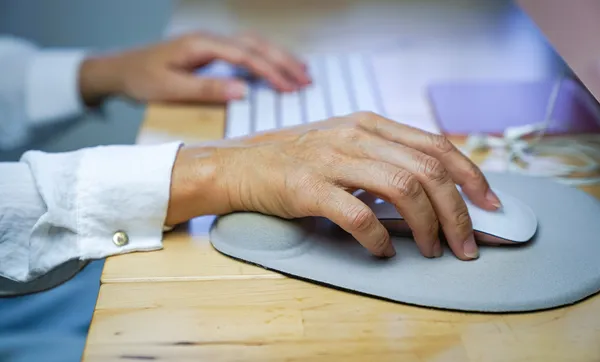

If you've got carpal tunnel trouble, watch out! These rests can actually press on the carpal tunnel and make matters worse.
Propping your head up
Why put the weight of the world on your hands? Using them as a chin rest or head prop might seem comfy, but it's actually a recipe for pressure and strain.


All that pressure and strain might seem minor at first, but over time, it can lead to discomfort and even injury.
Clenching your fists
Who knew that something as innocuous as clenching your fist could be a health hazard? It might seem like a harmless gesture, but over time, that tension can take its toll.


Before you know it, you're dealing with hand pain and fatigue. So, next time you're tempted to ball up those fists in frustration, take a deep breath and relax.
Sleeping on your hands
Sleeping with your hand in an awkward position can cause numbness, tingling, or compression of nerves, leading to discomfort and potential damage over time.


If you’re struggling with hand pain after a night’s rest, use a wrist splint or pillow to keep your wrists in a neutral position while sleeping.
Not moisturizing
Neglecting to moisturize your hands regularly can lead to dryness, cracking, and irritation, especially during cold or dry weather.


Make it a daily ritual to pamper your hands with a generous dose of moisturizer. Trust us, they'll thank you for it!
Exercising through pain
Ignoring hand pain during exercise, such as weightlifting or yoga, can lead to overuse injuries like tendonitis or ligament strains.


Pay attention to any discomfort or pain in your hands and wrists and modify your exercises or seek guidance from a professional if needed.
Poorly fitted gloves
Ever struggled with gloves that feel like a second skin or ones that seem more fitting for Shaquille O'Neal? Besides the fashion faux pas, ill-fitting gloves can hurt your hands.
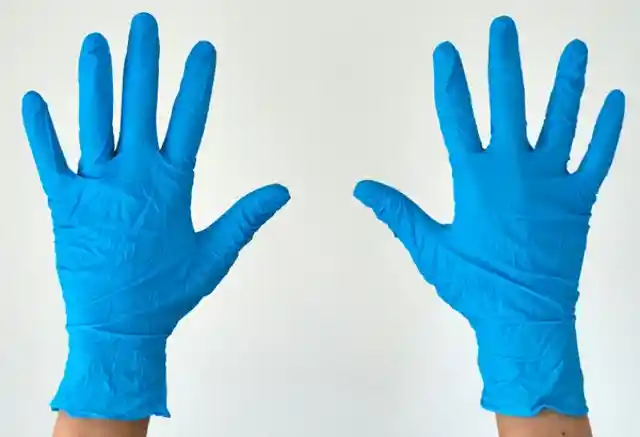
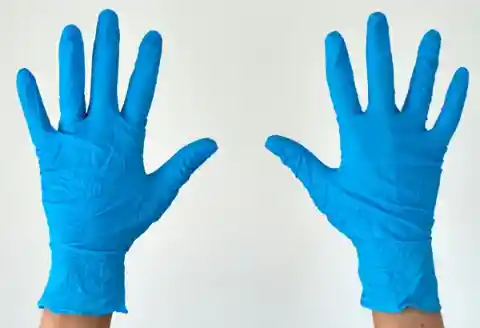
Too tight? Say hello to restricted movement and circulation. Too loose? Prepare for a clumsy grip and the constant fear of losing them.